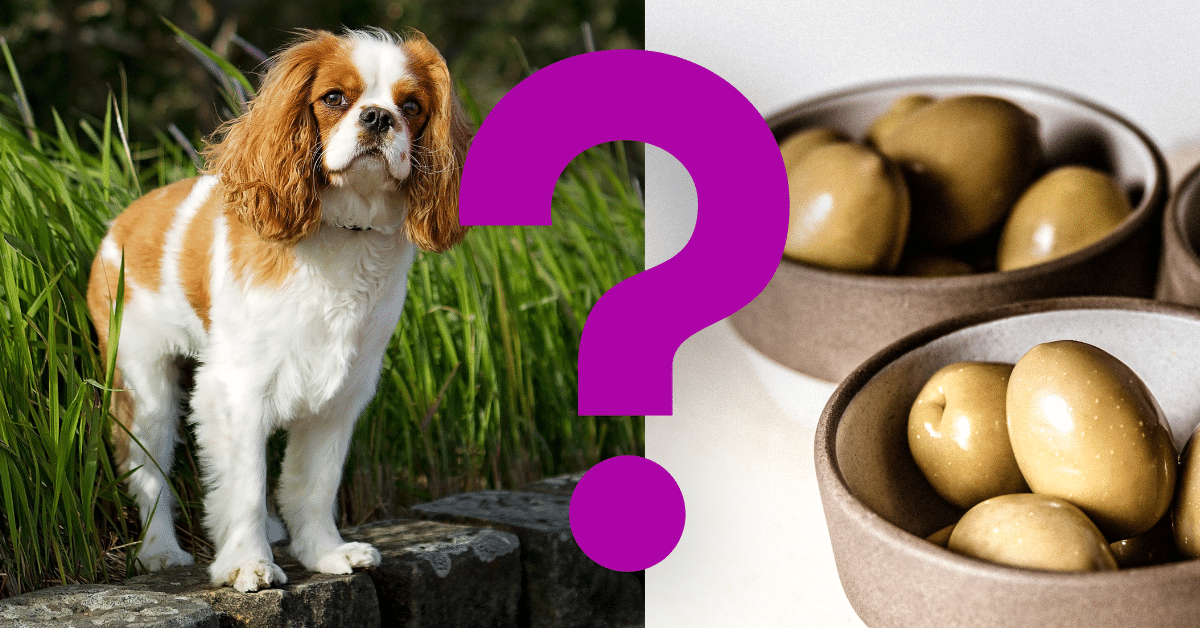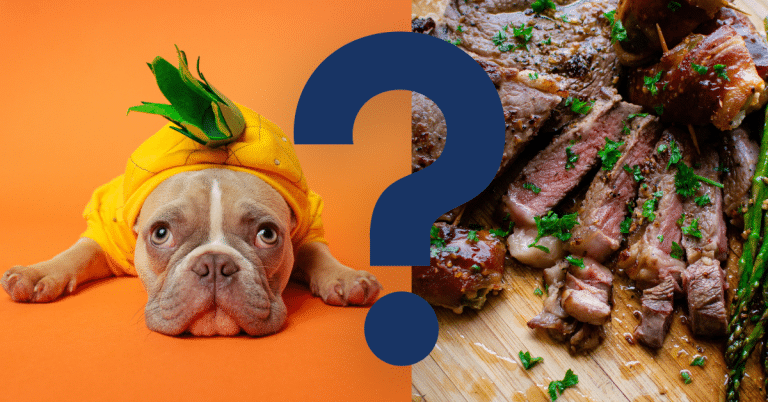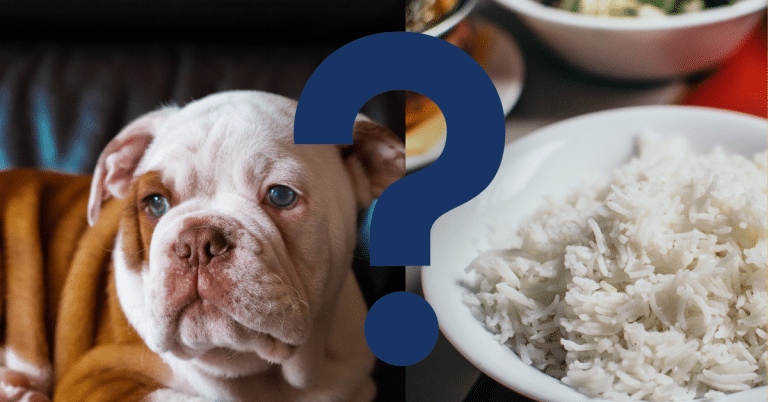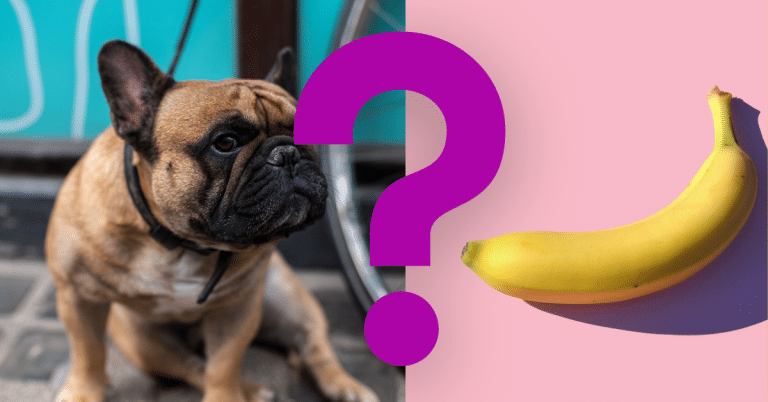Can Dogs Eat Olives? A Vet’s Opinion

Olives are small, oval fruits traditionally produced throughout the Mediterranean region. They are rich in vitamin E and other potent antioxidants. But can you feed olives to your dog?
In moderation, dogs can consume olives because they are safe to ingest. However, due to their high-fat content, which can cause pancreatitis, gastrointestinal distress, and weight gain, olives shouldn’t be a standard component of their diet. Additionally, some olives might have seeds that could suffocate you or clog your intestines. It’s best to give dogs pitted olives as an occasional treat in small doses while keeping an eye out for any indications of digestive problems. A veterinarian should always be consulted before adding new food to your dog’s nutrition.
Benefits Of Olives For Dogs
When provided in moderation, olives, like many other fruits and vegetables, can offer some health benefits to dogs. Here are a few possible advantages:
Antioxidant Properties
Olives have antioxidant properties, including vitamin E, which can assist dogs with oxidative stress and inflammation.
Healthy Fats
Monounsaturated fats, abundant in olives, can support a dog’s healthy epidermis and coat. They also enhance cardiac health and control cholesterol levels.
Fiber
Consuming foods high in dietary fiber, such as olives, can help dogs’ digestion and avoid constipation.
Vitamins And Minerals
Dogs’ general health can be supported by the calcium, iron, and vitamin A found in olives, among other vitamins and minerals.
Flavor
Olives can help add variety to your canine’s nutrition and can be a tasty and healthy substitute for traditional dog treats.
Although olives may have some advantages, it’s essential to remember that they should be consumed in moderation as part of a balanced diet. Dogs who consume too many olives may develop weight, digestive problems, and other health problems. Additionally, canines suffering from allergies or pancreatitis should never consume olives. Always seek advice from a doctor before introducing new foods to your dog’s diet.

How To Safely Give Olives To Dogs
If you’re thinking about feeding olives to your canine, do so carefully and safely to reduce any risks or unfavorable outcomes. Here are some pointers on how to feed your pup olives safely:
Choose The Correct Type Of Olive
The best olives for your dog are plain, pitted varieties without additional seasonings or oils. The ingredients in flavored olives may not be suitable for dogs, and the pits may be a choking danger.
Serve In Small Quantities
Giving your dog a small quantity of the olive to start will help you gauge how they will respond. Keep an eye out for any symptoms of digestive upset in your dog, such as vomiting or diarrhea.
Cut The Olive Into Small Pieces
Cut the olive into small, bite-sized pieces to make the olive simpler for your dog to chew and swallow.
Don’t Overfeed
As part of a balanced diet, olives should be provided in moderation. Dogs who consume too many olives may develop weight, digestive problems, and other health problems.
Watch Out For Adverse Reactions
After giving your dog olives, watch them to ensure they don’t experience any adverse side effects, such as an allergic reaction.
Consult Your Vet
If your dog has any underlying medical issues, mainly if they are present, always seek advice from your vet before adding any new foods to their diet.
In conclusion, even though olives can be a healthy treat for canines when given in moderation, it’s crucial to take the proper safety measures to ensure your dog’s well-being. You can add olives to your dog’s diet as a treat on occasion by picking the right kind, beginning with small quantities, and watching your dog’s response.
Will Olives Make A Dog Sick?
Although olives are not poisonous to dogs, if provided to some of them in excess or too frequently, they may make them sick or upset their stomach. Giving dogs olives could lead to the following possible problems:
Gastrointestinal upset: If a canine eats too many olives or has a digestive condition, they may experience diarrhea, vomiting, or other gastrointestinal symptoms.
Choking risk: The olive pits can be a choking risk for smaller dogs. Give your canine only pitted olives that have been finely chopped.
High-fat content: Olives contain a lot of fat, which can cause pancreatitis, an ailment where the pancreas becomes inflamed and unable to operate normally.
Allergic reactions: Olive allergies in canines are incredibly uncommon, but they can result in symptoms like hives, itching, and breathing difficulties.
Giving olives to your canine in moderation as part of a balanced diet is crucial to avoiding these problems. Always begin with a small quantity and watch for your dog exhibiting any upset stomach symptoms or other adverse reactions. It is best to speak with your veterinarian before giving olives to your dog as a treat if you are still determining their safety.
Can dogs eat olive variations?
Although some types of olives can be consumed by dogs in moderation, it’s essential to be aware of any possible health risks. Below are some typical olive varieties and information about each one:
Green olives: Natural olives harvested before turning black are called green olives. Compared to black olives, they are usually more challenging and more bitter. Dogs can consume green olives but they should be pitted and given in moderation because of their high sodium content.
Black olives: These are ripe olives that have grown dark in color. Compared to green olives, they are usually softer and have a milder flavor. Black olives are safe for dogs to consume, but because of their high-fat content, they should be pitted and given in moderation.
Kalamata olives: These black olives are a particular variety frequently seasoned in vinegar and oil. Although kalamata olives are safe for dogs to consume, their high-fat content and the possibility of additional ingredients that may not be safe for dogs should be considered.
Cured olives: To eliminate their bitterness, olives are cured by soaking them in saline water. Dogs can consume cured olives but they should only be provided in moderation due to their high sodium content.
Stuffed olives: Stuffed olives have different fillings, like cheese or garlic, packed inside. Dogs can consume stuffed olives in moderation and if the filling suits canines.
In general, it’s best to stick with plain, pitted olives and give them to your dog in moderation as an occasional treat.

Vet’s Summary
In conclusion, if provided in moderation and in the proper form, olives can be a healthy treat for dogs. They are a great source of antioxidants, good fats, and other nutrients that are good for the health of your canine. Olives should, however, be given with caution, and recipients should be made aware of any possible health risks related to particular kinds of olives, such as high sodium or fat content. In addition, if fed too many olives, some dogs may be allergic to them or develop digestive problems.
While adding olives to your dog’s food can be beneficial, some dogs may also benefit from probiotic supplements to support their digestive health. Probiotics are helpful bacteria that can keep the microorganisms in your dog’s gut in a healthy equilibrium, enhancing digestion and strengthening their immune system. Supplemental probiotics can benefit canines suffering from long-term digestive problems, such as inflammatory bowel disease or food sensitivities. Before giving your dog any new supplements, it’s crucial to select a high-quality probiotic supplement that is specially made for dogs and to confer with your vet.
Videos To Watch
If you are wondering what related foods are good to give your dog, watch this:
And if you want to know what a dog can NOT eat, watch this:






